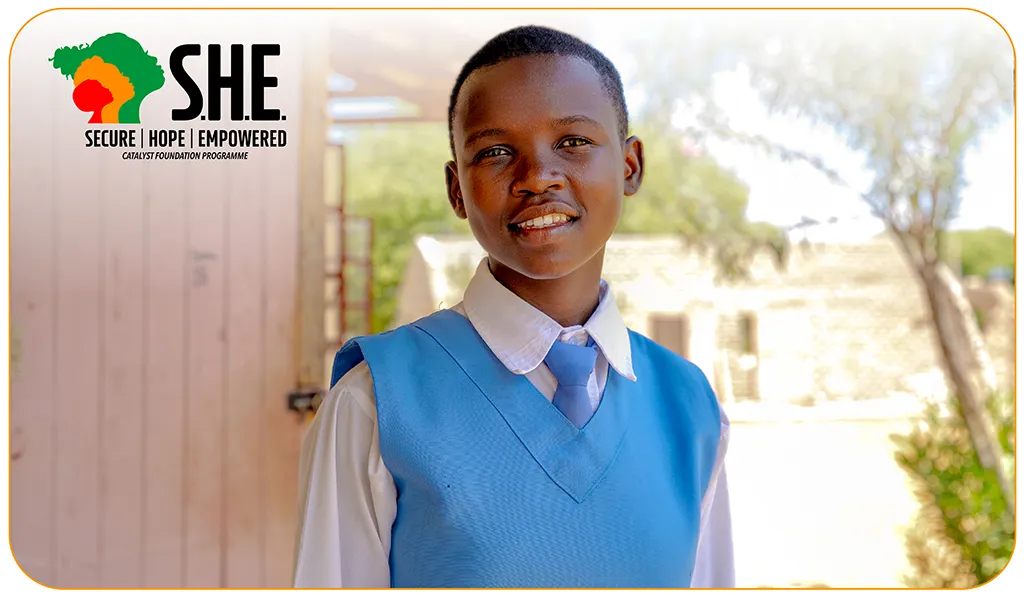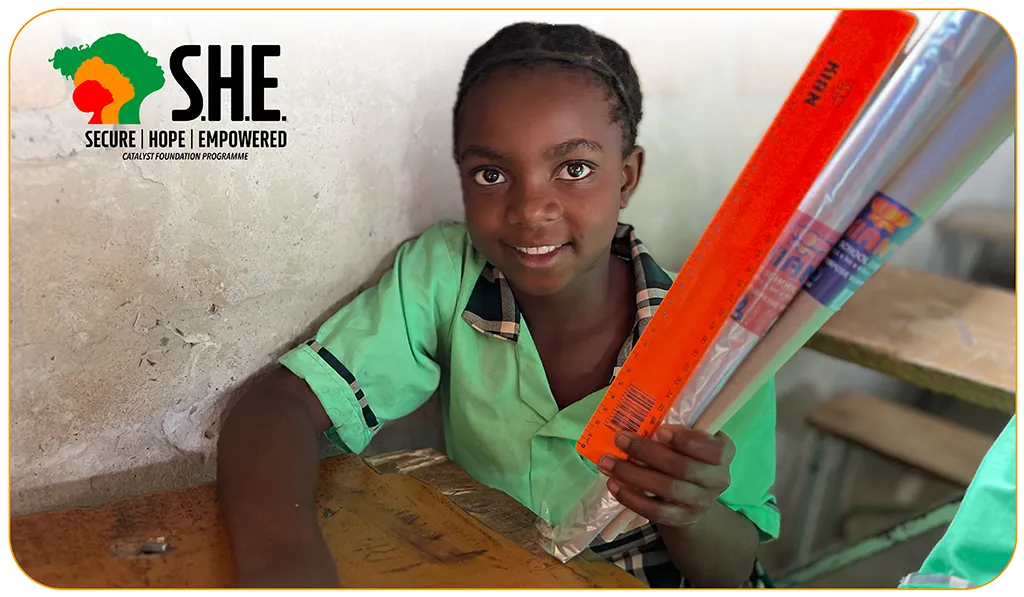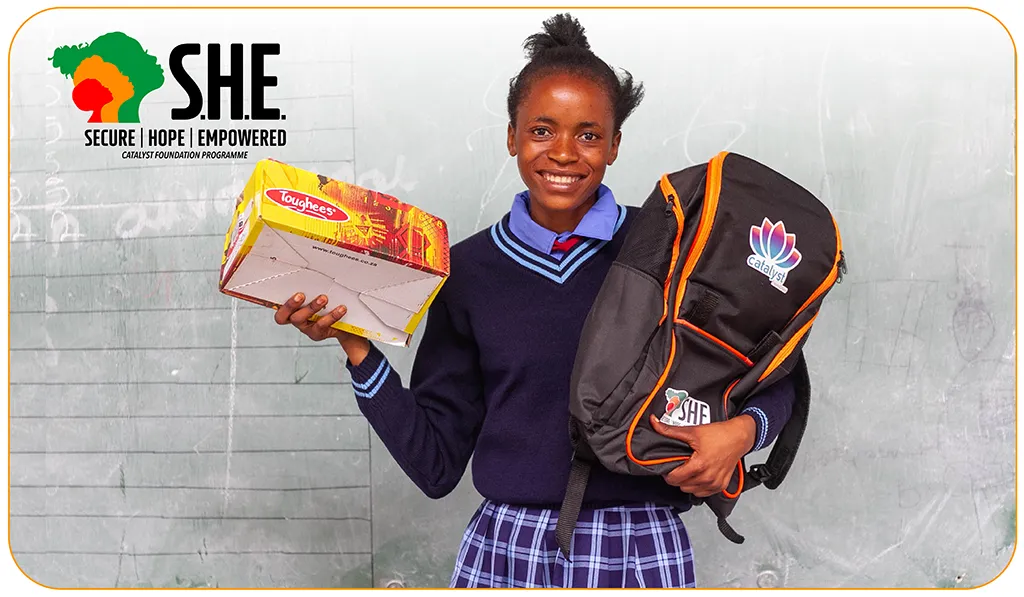Table of Contents
A Day for Every African Child
June 16th marks a pivotal moment on the African calendar: the Day of the African Child. Far more than just an annual observance, Day of the African Child is a powerful reminder of the incredible resilience, vibrant spirit, and immense potential held within every child across our diverse continent. It’s a day to celebrate their very existence, acknowledge the unique challenges they face, and renew our collective commitment to safeguarding their rights and futures.
At Catalyst Foundation, the spirit of the Day of the African Child resonates deeply with the core of our mission. Working on the ground in Zimbabwe and Zambia, we witness daily the profound impact of investing in young lives. This blog post will explore the historical roots of Day of the African Child, delve into its ongoing importance, highlight this year’s crucial theme, and demonstrate how we are actively working to ensure that every African child can truly thrive.
A Legacy of Courage: The Roots of the Day of the African Child
The Day of the African Child commemorates the courageous students who marched in Soweto, South Africa, on June 16th, 1976. They protested against an unjust education system, demanding their right to quality education in their languages. Their bravery, tragically met with brutal violence, spurred international condemnation and brought global attention to the systemic injustices faced by African children under apartheid.
In 1991, the Organisation of African Unity (now the African Union) officially instituted the Day of the African Child to honour these children and to draw attention to the ongoing need to improve the lives and secure the rights of all children across Africa. It serves as a stark reminder that the fight for African child rights is a continuous journey, rooted in a legacy of courage and a persistent call for justice.
Why Day of the African Child Matters Today: Planning, Budgeting, and Progress
While the historical context is vital, the Day of the African Child is profoundly relevant in contemporary Africa. It’s an opportunity for governments, civil society, communities, and individuals to assess progress and recommit to the well-being of children. This year, the theme – “Planning and budgeting for children’s rights: progress since 2010” – shines a crucial spotlight on accountability and investment.
This theme encourages us to look at how far African Union member states have come in prioritising children’s needs within their national plans and budgets over the last decade and a half. It’s about ensuring that promises translate into tangible resources for children’s education in Africa, healthcare, protection, and opportunities. When national budgets genuinely reflect a commitment to child rights, we see real-world impacts: more schools, better health facilities, enhanced social protection programmes, and stronger legal frameworks for child protection in Africa.
Despite significant advancements, many challenges persist, including poverty, lack of access to quality education, malnutrition, and the pervasive issue of child labour. The Day of the African Child theme this year is a powerful call for continued, child-sensitive budgeting and transparent planning, ensuring that the increasing youth population in Africa is seen as an asset to be invested in, not a burden. It underscores that true sustainable development in Africa hinges on the well-being of its youngest citizens.
The Reality in Zimbabwe and Zambia: Challenges and Triumphs
In Zimbabwe and Zambia, the Day of the African Child holds particular significance. Both nations are working towards development amidst various socio-economic challenges that can disproportionately affect children. Issues such as limited access to clean water, inadequate sanitation, economic hardship leading to child labour, and barriers to girls’ education are realities that many families face.
However, amidst these challenges, there is immense hope and resilience. Communities are striving for better, and organisations, both local and international, are collaborating to create positive change. The spirit of the African child – their adaptability, their joy, and their boundless potential – shines through. By focusing on Zimbabwe children and Zambia children, we address specific needs while contributing to the larger narrative of youth empowerment in Africa.
Empowering Through the S.H.E. Programme
At Catalyst Foundation, our commitment to the Day of the African Child is embedded in our daily work. Through our comprehensive S.H.E. (Secure, Hope, Empowered) Programme, we are actively working to break down barriers and transform lives, ensuring that children in Zimbabwe and Zambia can truly realise their rights and potential.
The S.H.E. Programme is a holistic initiative that addresses the interconnected factors vital for a child’s thriving future:
- Education as a Cornerstone: We believe that education is the most powerful tool for empowerment. Our S.H.E. Programme ensures children, especially girls, have access to schooling by providing essential supplies like uniforms and stationery, and by facilitating school fees where needed. Consistent attendance is key, and we actively work to remove obstacles that lead to school dropout.
- Combatting Period Poverty: A significant barrier to girls’ consistent school attendance is the lack of menstrual hygiene products and knowledge. Through the S.H.E. Programme, we provide reusable sanitary pads and vital health education, as demonstrated by our collaborations with Dzidzo Safepad Initiative in Beatrice. By ensuring dignified menstrual hygiene, we keep girls in classrooms, empowering them to learn without interruption.
- Fostering Health and Well-being: Clean water, proper nutrition, and health education are fundamental. The S.H.E. Programme facilitates access to these necessities, working to reduce waterborne diseases and improve overall child health in Africa. Healthier children are better equipped to learn and thrive.
- Creating Safe & Empowering Environments: We establish safe spaces and structured activities, particularly after school, which keep children engaged in positive pursuits and away from vulnerable situations like child labour. Through mentorship and life skills training, children learn resilience, self-worth, and their rights, empowering them to make informed choices and pursue a future free from exploitation. This integrated approach is critical for true community development in Africa.
By addressing these core areas, we directly contribute to the spirit and objectives of the Day of the African Child. We are not just providing aid; we are investing in human potential, fostering self-reliance, and building a generation that is secure in their rights, hopeful for their future, and empowered to lead.
A Collective Vision for a Brighter Future
The challenges facing African children are significant, but so too is the collective will to overcome them. The Day of the African Child serves as an annual impetus, reminding us that with sustained effort, collaboration, and a focus on children’s fundamental rights, we can create a continent where every child’s potential is unleashed. It’s a day to remember that their dreams are our shared future.
Together with our partners, volunteers, and supporters, we are committed to playing our part. We believe that by investing in a child’s right to an education, health, and a safe environment, we are not only preventing child labour but also nurturing the leaders, innovators, and compassionate citizens who will shape Africa’s prosperous tomorrow.
Call to Action: Be a Catalyst for African Children
The future of Africa lies in the hands of its children. We invite you to be a part of the solution.
- Donate: Your financial contribution directly supports the S.H.E. Programme, providing education, health services, and safe spaces that are critical for child protection in Africa. Visit www.catalystfn.org/donate to empower a child today.
- Partner: Explore corporate social responsibility (CSR) opportunities or other collaborations with Catalyst Foundation. Your partnership can amplify our reach and impact across Zimbabwe and Zambia. Contact us at info@catalystfn.org for partnership inquiries.
- Volunteer: Lend your time and skills to our initiatives. Whether on the ground in Zimbabwe and Zambia or remotely, your dedication can make a profound difference. Learn more at www.catalystfn.org/volunteer.
- Advocate: Share this blog post. Educate your networks about the importance of the Day of the African Child and advocate for African child rights. Every voice counts.
Together, we can ensure that the promise of the Day of the African Child becomes a living reality for every boy and girl, building a secure, hopeful, and empowered future for all.



